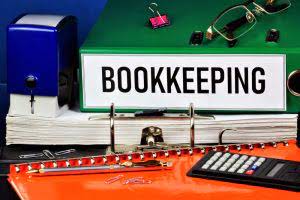Content

In this case, both seller and buyer record the transaction in their accounts on December 30. Seller will record the sale, increase accounts receivable and reduce the inventory. The buyer, on the other hand, will record the purchase, increase the account payable and increase the inventory as well. It requires the supplier to pay for the delivery of your goods up until the named port of shipment, but not for getting the goods aboard the ship. The accounting treatment for the FOB shipping point is important since adding costs to inventory means the buyer does not immediately have an expense.
Here at Strikingly we deal with several users who run their online stores through their ecommerce website. This is why we think it is an important matter to talk about the legal aspect of commercial agreements in terms of the shipping process. Now that almost everything is being shipped due to the pandemic restrictions, we want to know the answers to the following questions. Who takes ownership and has full responsibility once the packages are shipped? Who can file a claim to the insurance carrier when the products are lost or damaged while in transit?
So until 5th Feb’19, the goods belong to the seller and that it will be counted in seller’s inventory. Freight Prepaid and Added where the seller pays the freight charges and add it to the buyer’s invoice. EXW. Ex Works, which only requires the retailer to get products ready to be shipped from its location. The buyer is responsible for making any settlements for the shipment and for picking the goods up. It is in the buyer’s best interest to have the shipping terms be stated as FOB (the buyer’s location), or FOB Destination. So if the buyer is headquartered in New York, the terms would read “FOB New York.” And only when the purchased shipment arrives in perfect condition does the buyer accept it and consider the items listed in its system. Shippers and carriers need to know FOB designations in case the shipment is damaged or lost because some receiving ports refuse delivery of damaged goods instead of accepting the shipment with a damage notation.
We want to clearly present to you the difference between FOB destination and FOB shipping point. Here are some examples about how it works and how it impacts the seller and the buyer. Sure, you want to keep costs low by making your own shipping arrangements, but can you afford the liability if something goes wrong? Know your FOB options, so you can make the best decision based on each situation. If you use inventory management software, track each FOB delivery online to keep a close eye on it from departure to arrival.
Freight
To find out if your FOB destination is different from your FOB origin, you should always check with your supplier and make sure you have all of your contracts in order. Ownership of a cargo is independent of Incoterms, which relate to delivery and risk. In international trade, ownership of the cargo is defined by the contract of sale and the bill of lading or waybill. That also means that if a pallet of jewelry is lost or damaged in shipment, the buyer must file any claims for reimbursement – not the seller – since the shipment became the buyer’s responsibility immediately.
FOB destination means that goods are placed free on board at the buyer’s place of business, and the seller pays the freight. FOB shipping point – Notes responsibility of goods and title transfer from seller to buyer once the goods are loaded on the delivery vehicle at the shipping point. Once this happens, and the legal title of all goods is transferred to the buyer, the seller is no longer responsible for the goods. Simply put, an incoterm is the standard contract used to define responsibility and liability for the shipment of goods. It plainly lays out how far along into the process the supplier will ensure that your goods are moved and at what point the buyer takes over the shipment process. The buyer should record the purchase, the account payable, and the increase in its inventory as of December 30 . Since the goods on the truck belong to the buyer, the buyer should pay the shipping costs.

If your customers are fully aware of the shipping process, there will be no misunderstanding between sellers and buyers. Also, the best thing about the shipping feature with Strikingly is that you have the option to grant free shipping for every order of at least a certain amount before taxes. An “FOB Dallas” shipment means the wholesaler will cover shipping costs and owns the goods until you receive them. It means that when goods are in transit, a seller reports them as being a purchase. Still, the buyer, if the buyer is a business, would notify them as inventory. Freight Collect and Allowed – Buyer pays freight charges once goods are received.
Related Terms
Essentially, as soon as your freight is on board, you’re the one liable for them. Cost-wise, it means you pay for all transport costs, customs, and if anything happens after the seller loads them onto the ship.
Ideally, as a business owner, you need to know the FOB shipping meaning that we discussed above. For buyers, understanding what is FOB point and its impact can help them determine their legal rights and responsibility if the shipment gets damaged or lost while being shipped. The two terms have a specific meaning in commercial law and cannot be altered. In this case the specific terms of the agreement can vary widely, in particular which party, buyer or seller, pays for the loading costs and shipment costs, and/or where responsibility for the goods is transferred. The last distinction is important for determining liability or risk of loss for goods lost or damaged in transit from the seller to the buyer. Another important difference between FOB shipping point and FOB destination is that of the party responsible for the shipping costs of the products.
Accounting And Auditing
Free on board is a trade term used to indicate whether the buyer or the seller is liable for goods that are lost, damaged, or destroyed during shipment. Whether you ultimately decide to ship FOB or choose another agreement, it’s important to know all of your options so you can choose the one that’s best for you. This guide should help you understand FOB shipping, which should get you on your way to knowing how best to ship your goods internationally for your business.

Free on board destination indicates that the seller retains liability for loss or damage until the goods are delivered to the buyer. Free on board, also referred to as freight on board, only refers to shipments made via waterways, and does not apply to any goods transported by vehicle or by air. Free on board shipping point and free on board destination are two of several international commercial terms published by the International Chamber of Commerce. Once the goods reach port in your country, you may also have to pay to have them unloaded from the ship or plane, unpacked and prepared to be shipped onward. Check out this guide to learn about the different invoice types businesses can send and receive.
Sending Money Overseas To Pay Suppliers? Wise Could Help You Save
Whether you ship UPS, FedEx, LTL or use a 3PL, Shipware has a customized solution for you. Since 2011, Shipware has helped hundreds of businesses to reduce shipping costs and spend efficiently. Unloading and transporting the goods from the port of origin to the final destination. Destination contract, the buyer is only responsible for the costs of getting the freight to their desired location from the final port. The term “free on board”, or “f.o.b.” was used historically in relation to the transfer of risk from seller to buyer as goods are shipped. Conversely, when you are selling to an overseas buyer, it is in your best interest for the buyer to become responsible as soon as it leaves your loading dock.
Having said that, we take great honor to serve you with the best web services and tools you need to start your ecommerce business now. Do you have enough slack built into your inventory control processes to tolerate a lost or delayed shipment? If you know the risks and aren’t willing to bear them, https://www.bookstime.com/ may not be your best option.
- The buyer records the purchase, accounts payable, and the increase in inventory on January 2 when the buyer becomes the owner of the goods.
- It also means that the seller should record the sale when the goods leave the warehouse.
- The term ‘free’ refers to the supplier’s obligation to deliver goods to a specific location, later to be transferred to a carrier.
- While shipping costs are determined by when the buyer takes ownership of a particular order of goods, a company’s accounting system is also impacted.
- So if the buyer is headquartered in New York, the terms would read “FOB New York.” And only when the purchased shipment arrives in perfect condition does the buyer accept it and consider the items listed in its system.
The shipper is free of any obligation regarding the goods once they are on the ship. FOB Shipping Point or ‘Free on Board Shipping Point’ or ‘FOB Origin’ is a shipping term indicating that a buyer must pay for the delivery of the goods. This means that the title of the goods passes to the buyer as soon as the shipment leaves the seller’s warehouse .
I’ve saved your site and I’m including your RSS feeds to my Google account. There are many terms importers and exporters need to be savvy about and well-versed in. Some are more common than others, such as Free On Board , Free Carrier and Ex Works . To further clarify, let’s assume that Claire’s Comb Company in the US purchases a container of The Wonder Comb from a supplier based in China.
Accounting For Fob Shipping Point Terms
Under delivered duty paid , the seller is responsible for the cost of transporting goods until customs clears them for import at the destination. Something to watch out for when you pay for the goods is paying more than you need to for the international payment. Many banks and money transfer services hide most of their profit in poor exchange rates. There are many factors to take into consideration when deciding which option is better for you. Many sellers prefer to make FOB shipping point deals, because then the buyer will foot the cost and liability for transport. Even if you’ve decided that FOB is the best decision for you, there are still a few more nuances. Buyer will not be responsible for any shipping costs of the goods and their damage if happens.
Bloemen voor Alle should record the sale at $50,000 on 11 October 2012. Nationwide Auto Transportation can assist with the local car relocation from the address of origin to the port of origin anywhere in the United States of America. This determines who shoulders the shipping costs and ancillary charges that might incur along the way.
- Freight Prepaid and Added – Seller pays freight charges and then bills them to buyer.
- The distinction is important in specifying who is liable for goods lost or damaged during shipping.
- The supplier takes full responsibility for the computers and must either reimburse Company XYZ or reship the computers.
- Buyers must insist on FOB shipping point terms as it gives them complete control over the delivery of goods after they leave the seller’s warehouse .
The term FOB is also used in modern domestic shipping within North America to describe the point at which a seller is no longer responsible for shipping costs. EXW. Ex Works, which only requires the seller to get products ready to be shipped from its FOB Shipping Point location. The buyer is responsible for making any arrangements for shipment and for picking the goods up. Cost, insurance, and freight is a method of exporting goods where the seller pays expenses until the product is completely loaded on a ship.
See how much time and money you’ll save by having our pros help manage your freight. Our priority at The Blueprint is helping businesses find the best solutions to improve their bottom lines and make owners smarter, happier, and richer. That’s why our editorial opinions and reviews are ours alone and aren’t inspired, endorsed, or sponsored by an advertiser. Editorial content from The Blueprint is separate from The Motley Fool editorial content and is created by a different analyst team. Instead, it was more cost-effective to ship all the books to Little Rock and have our distributor send a pallet of books to us from there. We also didn’t want to be liable if something happened to our books while they were en route to Arkansas. So, even though it was more expensive, we went with FOB destination.
FOB destination – Means that transfer of ownership and responsibility occurs at the buyer’s loading dock, their post office or their physical location. Upon delivery to the buyer’s noted location, the title is transferred to the buyer, who then owns the goods and is legally responsible for them. In FOB Shipping Point buyer must record the purchase as soon as the goods leave seller’s warehouse . In practice, however, it is difficult for the buyer to record the delivery when the goods leave the seller’s warehouse.
FOB is a shipping term that stands for “free on board.” If a shipment is designated FOB (the seller’s location), then as soon as the shipment of goods leaves the seller’s warehouse, the seller records the sale as complete. The buyer owns the products en route to its warehouse and must pay any delivery charges.
FOB also determines when a business will record a sale for accounting purposes. If a shipment is designated as FOB Shipping Point, the sale will be recorded in the accounting system as soon as the shipment leaves the seller’s dock. At the same time, the buyer will record in its accounting system that inventory is on route. That inventory then becomes an asset in the buyer’s accounting books even though the shipment hasn’t yet arrived.
Fob Shipping Point Or Fob Destination
Ultimately, this means that the buyer is responsible for shipping costs as well as any additional liabilities of the goods being transported. Realistically, it is quite difficult for the buyer to record a delivery at the shipping point, since this requires proper notification into the buyer’s inventory management system from an outside location. From a practical perspective, recognition of receipt is instead completed at the receiving dock of the buyer. Thus, the sale is recorded when the shipment leaves the seller’s facility, and the receipt is recorded when it arrives at the buyer’s facility. This means there is a difference between the legal terms of the arrangement and the typical accounting for it.
We And Our Partners Process Data To:
Buyers must insist on FOB shipping point terms as it gives them complete control over the delivery of goods after they leave the seller’s warehouse . With FOB destination, ownership of goods is transferred to the buyer at the buyer’s loading dock. We know there’s no one-size-fits-all solution to cost-efficient shipping. Our team of former UPS, FedEx and LTL pricing analysts use a blend of data modeling, Shipware’s proprietary technology, and insider knowledge to build a solution that fits your needs. Whether your goal is to reduce shipping costs, improve transit times, ensure your customers are happy – or, all of the above – Shipware is here to help.

Kommentárok